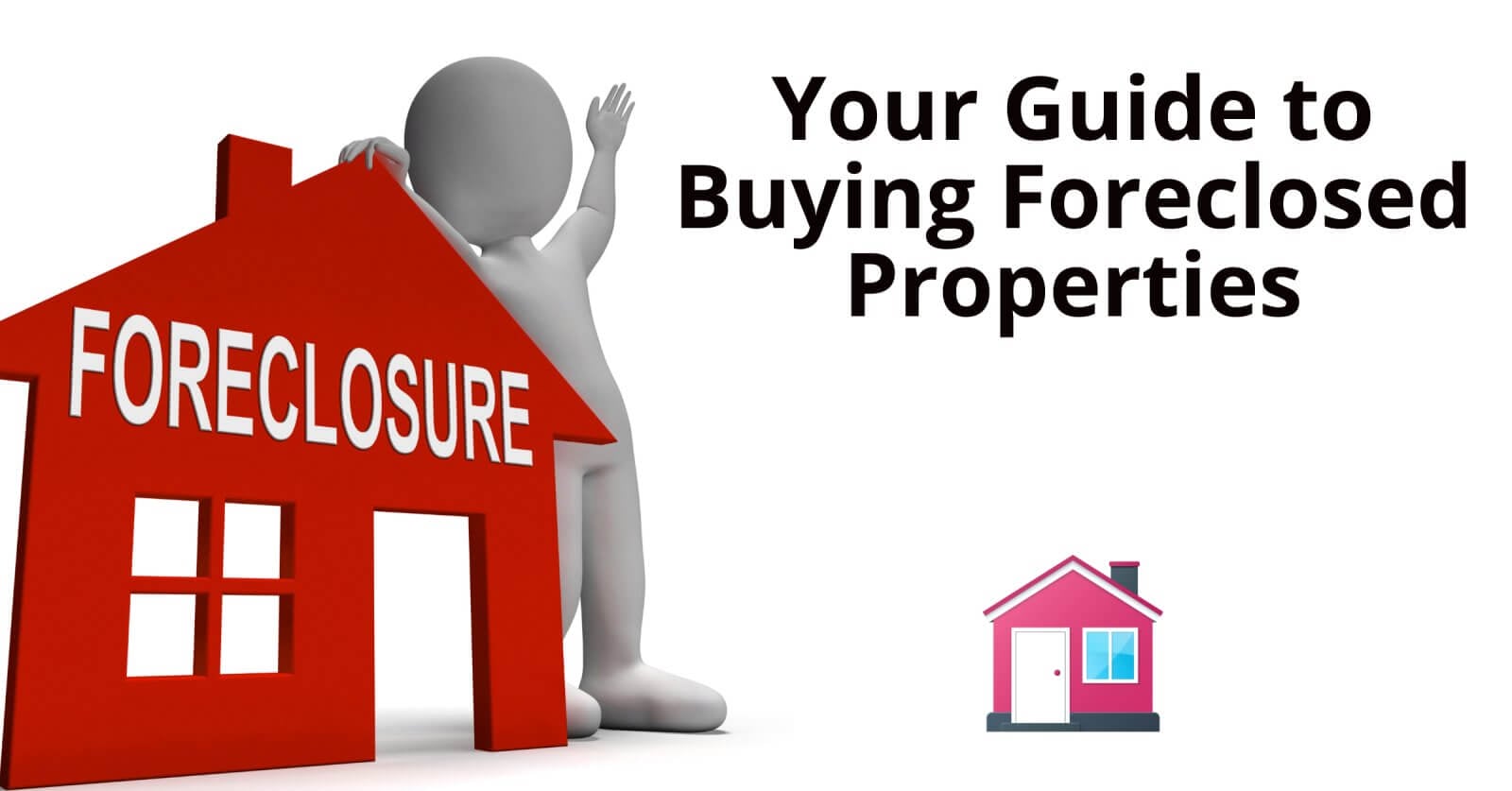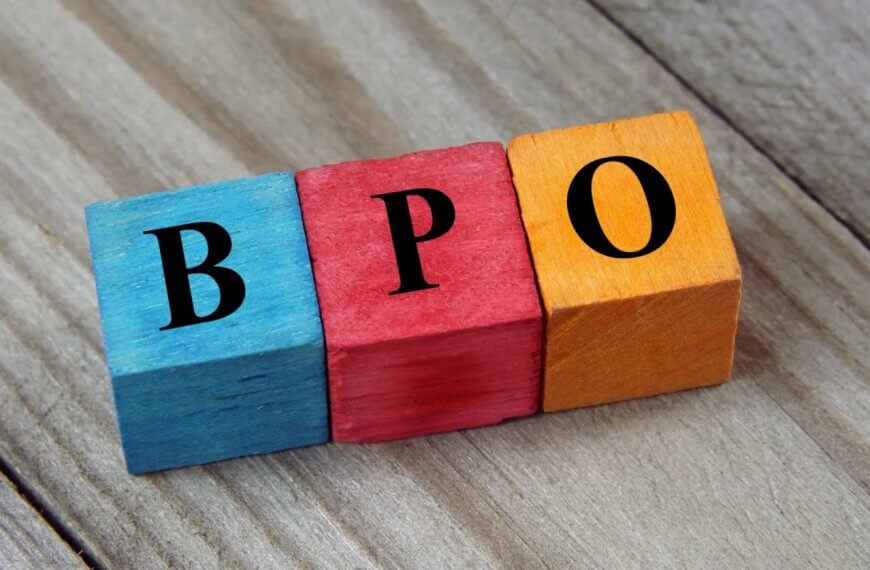Your Guide to Buying Foreclosed Properties in the Philippines
Buying foreclosed properties can be a lucrative investment opportunity, but the process can be overwhelming for prospective buyers. To simplify the buying process and provide valuable information, we have prepared a comprehensive guide on how to buy foreclosed properties in the Philippines.
This guide aims to provide step-by-step instructions to make the process more accessible and transparent. It covers all the essential aspects, including finding foreclosed properties, understanding the foreclosure process, dealing with government agencies and financial institutions, and additional costs involved.
When buying foreclosed properties, it is crucial to conduct thorough research and understand the property’s background. This includes checking the property taxes, previous owner, and any structural flaws that need to be addressed.
The guide also explains the different modes of payment for foreclosed properties, such as cash purchase, installment purchase, or mortgage loans. It provides insights into the auction process, the role of real estate agents and brokers, and how to navigate through listing services and government-owned property websites.
With the right information and a strategic approach, buying foreclosed properties can be a profitable investment. This guide aims to empower potential buyers with the knowledge and resources needed to make informed decisions and successfully purchase foreclosed properties in the Philippines.
Stay tuned for our upcoming articles, where we will delve into specific topics related to foreclosed properties, including tips for financing, evaluating potential properties, and maximizing returns on your investment.
Tips for Buying Foreclosed Properties:
When it comes to buying foreclosed properties, there are several tips that prospective buyers need to consider. First and foremost, it is important to work with accredited real estate brokers or agents who specialize in foreclosed properties. These professionals have the expertise and knowledge to guide buyers through the intricacies of the process.
Another crucial tip is to have extra cash on hand for down payments. In many cases, foreclosed properties require a higher down payment compared to regular real estate transactions. By having extra cash available, buyers can secure the property they want and avoid delays.
Additionally, buyers should be cautious about high-interest rates. It is important to thoroughly research and compare mortgage loan options to ensure they are getting the best possible deal. High interest rates can significantly affect the overall cost of the property over time.
Understanding the auction process is also essential. Foreclosed properties are often sold through public auctions, and buyers need to familiarize themselves with the rules, regulations, and bidding procedures.
Lastly, buyers must assess their financial capability to pay for the foreclosed property. This includes considering not only the purchase price but also the additional costs such as property taxes, maintenance fees, and potential renovations.
By following these tips and conducting thorough research, buyers can navigate the process of buying foreclosed properties with confidence and increase their chances of making a successful investment.
Acquiring Foreclosed Properties Through Pag-IBIG
Acquiring foreclosed properties through Pag-IBIG is a viable option for individuals looking to invest in real estate. The process involves several steps, but it offers flexibility in terms of payment options.
To begin, interested buyers need to submit a purchase offer form to the Pag-IBIG branch where the property is located. Along with the form, valid IDs and proof of income are required. These documents serve as verification of the potential buyer’s eligibility to acquire the foreclosed property.
Once the offer is accepted, buyers can choose from different payment options. Those who have the means to pay in cash can take advantage of a cash discount. For those who prefer short-term installments, Pag-IBIG offers payment terms ranging from 6 months to 2 years.
Alternatively, buyers can opt for the Pag-IBIG housing program, which enables them to pay for the property over a longer period, typically up to 30 years. This offers more manageable monthly payments.
Acquiring foreclosed properties through Pag-IBIG provides a range of options for prospective buyers. With the flexibility in payment terms and various financing options available, individuals can turn foreclosed properties into profitable investments.
Acquiring Foreclosed Properties Through Bank
When it comes to acquiring foreclosed properties through banks, there are certain steps and considerations that prospective buyers need to keep in mind. Bank-owned properties can often be a lucrative investment opportunity, offering potential buyers the chance to purchase real estate at a discounted price. However, it’s important to understand the buying process, the potential risks and additional costs involved, and the various options available for financing the purchase. In this article, we will explore the different steps and tips for acquiring foreclosed properties through banks, providing valuable insights for those looking to invest in real estate in this manner.
How to Buy a Foreclosed Home
When looking to buy a foreclosed home, there are two main methods to consider: purchasing through an auction or working with a real estate agent.
The auction process offers the benefit of potentially finding a property at a lower price, as properties are often sold “as is” and without any warranties. However, it can be a risky choice because buyers don’t have the opportunity to conduct a home inspection before purchasing. Additionally, the competition at auctions can be fierce, making it difficult for prospective buyers to secure the property they want.
On the other hand, working with a real estate agent can provide a more streamlined buying process. Agents can help identify available foreclosed properties, negotiate on behalf of the buyer, and guide them through the necessary paperwork. This method allows for a home inspection, providing a better understanding of the property’s condition before purchasing.
It’s important to note that, regardless of the method chosen, there may be additional costs involved, such as property taxes, processing fees, and potential structural flaws that need to be addressed. However, buying a foreclosed home can be a profitable investment for those willing to put in the time and effort.
In conclusion, whether purchasing through an auction or with a real estate agent, buying a foreclosed home requires careful consideration of the benefits and drawbacks of each method. It is crucial for prospective buyers to conduct thorough research and engage in proper due diligence to make an informed decision.

What are foreclosed properties?
Foreclosed properties are properties that have been taken over by banks or government agencies due to the previous owner’s failure to pay their loans or taxes. As a result, ownership of the property is transferred to the institution, which then tries to sell it to recoup their financial losses.
Foreclosed properties are significant in the real estate market because they offer potential buyers the opportunity to purchase properties at a lower price compared to the market value. These properties are often sold “as is,” meaning they are sold in their current condition without any warranties.
It’s important to note that many foreclosed properties are in a deteriorated state, as the previous owners may not have had the financial means to maintain them properly. However, some foreclosed properties may still be in relatively good condition, making them attractive to prospective buyers.
Buyers interested in foreclosed properties can find them through listings provided by banks, government agencies, or real estate brokers. It’s essential to thoroughly research and conduct inspections before purchasing a foreclosed property to assess any potential renovation or repair costs.
Overall, foreclosed properties offer a unique opportunity for buyers looking for affordable real estate options. However, it’s crucial to be aware of the risks and costs involved, as well as conduct due diligence to ensure a successful and profitable investment.
Keywords: foreclosed properties, banks, government agencies, unpaid loans, deteriorated state.
Advantages of Buying Foreclosed Properties
Buying foreclosed properties offers several advantages to prospective buyers. One of the main benefits is the low price these properties are typically sold at. Since they are sold in their current condition, without any warranties, buyers can often purchase foreclosed properties at a significantly lower price compared to their market value. This affordability allows buyers to potentially acquire a property that may have otherwise been out of their budget.
Another advantage is the legitimate and quick transaction process that comes with buying foreclosed properties. These properties are usually sold through public auctions or listing services, ensuring a transparent and legally binding transaction. This eliminates any potential complications that may arise when dealing with private sellers.
Additionally, foreclosed properties offer investment possibilities. Buyers can choose to renovate and sell the property for a profit or use it as a rental investment. These properties often provide a high return on investment, making them attractive options for real estate investors.
Furthermore, when buying foreclosed properties, buyers can benefit from the fact that taxes and utilities are usually taken care of. In many cases, the previous homeowner or the lending institution has already paid off any outstanding property taxes. This can help buyers avoid additional costs and simplify the overall buying process.
In conclusion, buying foreclosed properties allows buyers to take advantage of low prices, legitimate transactions, investment opportunities, and the convenience of having taxes and utilities taken care of. However, it’s crucial for buyers to conduct thorough research and inspections to ensure a successful and profitable purchase.
Disadvantages of Buying Foreclosed Properties
Buying foreclosed properties may come with some disadvantages that potential buyers should be aware of. One major drawback is purchasing the property “as is,” meaning that the buyer takes full responsibility for any damages or repairs needed. It is not uncommon for foreclosed properties to have significant wear and tear or structural flaws due to neglect or previous owner’s financial difficulties.
Another disadvantage is the potential existence of liabilities attached to the property. Some foreclosed properties may have outstanding liens, mortgages, or unpaid utility bills. Buyers must conduct thorough due diligence to ensure they are not burdened with any legal or financial issues left by the previous homeowner.
Buying foreclosed properties also requires patience. The process can be more complicated and time-consuming compared to purchasing a traditional property. This is because obtaining the necessary documents from the lending institution or government agencies involved can be a lengthy process. Additionally, conflicts may arise with informal settlers who may still be occupying the property, which may require legal intervention to resolve.
To mitigate the challenges and risks, it is crucial to enlist the help of a knowledgeable real estate agent or a foreclosure specialist who can guide buyers through the buying process. Conducting a thorough inspection is also essential to uncover any hidden damages or issues that may require costly repairs. Additionally, buyers should allocate a budget for potential repairs or renovations to ensure the property’s habitability or marketability.
In summary, while buying foreclosed properties can offer advantages such as quick transactions and investment opportunities, it is important for potential buyers to be aware of the disadvantages. Conducting due diligence, addressing potential damages, and seeking professional assistance can help navigate the challenges and make informed buying decisions.
Buying Foreclosed Properties: Do’s and Don’ts
When it comes to buying foreclosed properties, there are important do’s and don’ts that prospective buyers should keep in mind.
First and foremost, do your thorough research. Look for listings of foreclosed properties from various sources such as government-owned property websites, real estate brokers, and listing services. This will give you a wide range of options to choose from.
Once you find potential properties, don’t skip the crucial step of conducting a property inspection. Take the time to visit the property and assess its condition. Look for any damages or structural flaws that may require costly repairs in the future.
Create a wish list of the features and location you desire in a property. This will help you narrow down your choices and prioritize your needs.
Don’t be discouraged by potential damages or future costs. Foreclosed properties are often sold at a lower price, making them a potentially profitable investment. Consider the potential return on investment and the opportunity to build equity.
Lastly, don’t proceed with the purchase without completing all necessary documentation and due diligence. Ensure that the property title is clear and free from any encumbrances. It is also advisable to consult with a real estate attorney to guide you through the legal aspects of the buying process.
By following these do’s and don’ts, you can navigate the process of buying foreclosed properties successfully. Remember to do your research, conduct a thorough inspection, create a wish list, and complete all necessary documentation.
How To Find Foreclosed Properties
When looking to buy foreclosed properties, it is important to know where to find them. There are several sources for finding foreclosed properties, offering prospective buyers a wide range of options to choose from.
One of the main sources for foreclosed properties is government agencies. Organizations like Pag-IBIG and the Social Security System (SSS) often list foreclosed properties on their websites. Additionally, government banks such as Land Bank and the Bangko Sentral ng Pilipinas (BSP) also offer listings of foreclosed properties for sale.
Private banks and insurance companies are also great sources for finding foreclosed properties. These institutions may have their own listings or work with real estate brokers to market these properties.
To find foreclosed properties, it is advisable to search online and visit the websites of government agencies, private banks, and insurance companies. These websites often have dedicated sections or search functions specifically for foreclosed properties.
By utilizing these various sources to find foreclosed properties, prospective buyers can have a wide selection to choose from. It is important to carefully review the property listings and consider factors like location, condition, and potential return on investment.
Top Banks in the Philippines with foreclosed Properties
Here are 10 banks in the Philippines that offer foreclosed properties, along with a brief description and a link to their websites:
| Bank Name | Description | Website |
|---|---|---|
| Banco de Oro (BDO) | BDO offers a wide range of foreclosed properties across the Philippines, including residential and commercial properties. They provide detailed property listings and auction information on their website. | BDO Website |
| Philippine National Bank (PNB) | PNB features a selection of foreclosed properties, including houses, lots, and condominiums. They regularly update their listings and provide helpful resources for buyers. | PNB Website |
| Metrobank | Metrobank has an extensive inventory of foreclosed properties, including real estate assets from Metrobank and their subsidiary, Metrobank Group. They offer an easy-to-navigate online platform for property search. | Metrobank Website |
| Security Bank | Security Bank provides a variety of foreclosed properties, including residential and commercial options. Their website offers comprehensive property details, including photos and location maps. | Security Bank Website |
| UnionBank | UnionBank is known for its extensive listing of foreclosed properties available for sale. They regularly conduct public auctions and offer user-friendly search options on their website. | UnionBank Website |
| China Banking Corporation (Chinabank) | Chinabank offers foreclosed properties that include residential homes, vacant lots, and commercial spaces. They provide an online database for property inquiries and bidding. | Chinabank Website |
| EastWest Bank | EastWest Bank features a range of foreclosed properties, including residential, commercial, and agricultural properties. Their website provides detailed property listings and auction schedules. | EastWest Bank Website |
| Land Bank of the Philippines | Land Bank offers foreclosed properties, including agricultural land, residential properties, and commercial spaces. They provide information about their public auctions and property listings. | Land Bank Website |
| RCBC Savings Bank | RCBC Savings Bank has a selection of foreclosed properties available for purchase, including houses and lots, condominiums, and townhouses. They provide an easy-to-use property search tool on their website. | RCBC Savings Bank Website |
| BPI (Bank of the Philippine Islands) | BPI offers a variety of foreclosed properties, including residential and commercial assets. Their website features an extensive property listing, complete with photos and relevant details. | BPI Website |
Keep in mind that the availability of foreclosed properties may vary over time, so it’s crucial to regularly check the websites of the respective banks or directly contact them for the latest information on available properties and the purchasing procedure.
Investment Strategies for Foreclosed Homes
Investing in foreclosed homes can be a lucrative strategy for prospective buyers. These properties, often sold at discounted prices, present opportunities for both short-term profits and long-term investments. By following the right investment strategies, buyers can maximize returns and minimize risks. This guide will examine different strategies for investing in foreclosed homes. These strategies include conducting detailed research, creating a financial plan, selecting properties carefully, and managing the properties effectively.Whether you’re a seasoned investor or a first-time buyer, these strategies will help you navigate the world of foreclosed properties and make informed decisions that can lead to profitable investments.
Flipping Properties
Flipping properties involves buying foreclosed properties at a discounted price and then making renovations and improvements to increase its value. After these upgrades, the property is remarketed and sold for a profit.
To improve a foreclosed property after purchase, investors can focus on adding bedrooms and bathrooms, as well as redesigning the kitchen and bathrooms. By increasing the number of bedrooms and bathrooms, the property becomes more attractive to potential buyers and its market value can significantly increase. Redesigning the kitchen and bathrooms can also give the property a fresh and modern look, further boosting its appeal.
One crucial aspect to consider when flipping properties is assessing the property’s initial price in relation to the neighborhood’s market value. If the purchase price is too high compared to the area’s market value, it may be challenging to sell the property for a profit. A thorough analysis of comparable properties in the neighborhood should be done to ensure the property can be sold at a competitive price.
Flipping properties can be a profitable investment strategy if done correctly. However, careful evaluation of the property’s initial price, along with strategic renovations and improvements, is essential for success in this venture. By effectively improving and remarketing foreclosed properties, investors can maximize their returns and capitalize on this real estate investment opportunity.
Holding Properties
When investing in foreclosed properties, one strategy to consider is holding the property and offering it as a rental. This can be a wise approach as it allows you to generate income from the property while waiting for its value to appreciate further. However, before deciding on this strategy, it is crucial to ensure that there is sufficient demand in the rental market to cover maintenance costs.
Additionally, when buying a foreclosed property, it is essential to carefully inspect the property for any structural flaws. While foreclosed properties can often be purchased at a discount, they may also come with hidden issues that need to be addressed. By thoroughly evaluating the property condition upfront, you can avoid unexpected expenses and ensure that the property is a worthwhile investment.
Holding properties in the rental market can be a profitable long-term strategy, especially in areas with high demand. However, it is crucial to conduct thorough market research to understand rental rates, tenant demand, and maintenance costs. Inspecting the property for structural flaws can help you avoid financial setbacks by making informed decisions. By carefully considering these factors, you can turn a foreclosed property into a profitable investment.
Exit Strategies
When it comes to buying foreclosed properties, it’s not just about the purchase itself. It’s important to have a solid exit strategy in mind – a plan for when and how you will sell the property in the future. This is essential because selling a foreclosed property can present certain challenges that need to be navigated.
One potential difficulty is poor economic conditions. During a downturn in the real estate market, it may be more challenging to sell a foreclosed property at a desirable price. This is something to consider when developing your exit strategy. Additionally, setting a clear sales deadline can help create urgency, motivating potential buyers to act.
Obtaining lender approval for short sales is another factor to consider. In some cases, the proceeds from the sale may not cover the outstanding loan amount. In these situations, you may need to negotiate with the lender for their approval to sell the property at a loss.
For fixer-upper properties, financing repair costs is another consideration. These properties often require significant renovations before they can be sold for a profit. Having a plan in place for financing these repairs can help ensure a smoother selling process down the line.
Overall, developing a well-thought-out exit strategy is crucial for buying foreclosed properties. It helps you navigate potential difficulties and maximize the profitability of your investment.
Conclusion
Overall, investing in foreclosed properties can be a lucrative opportunity, but it requires careful research and due diligence. To make a successful investment, it’s important to understand the buying process, do thorough research on the property and its history, and consider additional costs and financing options.
Thorough research is crucial when buying a foreclosed property. It helps in identifying the property’s condition, its market value, and any potential liens or legal issues. By knowing the property’s history and conducting a proper inspection, investors can avoid expensive surprises and make an informed decision.
Additionally, due diligence is essential to assess the property’s potential for profitability. This includes considering the location, market conditions, and whether it aligns with your investment goals. It is also important to assess your financial capabilities and evaluate the potential return on investment.
In conclusion, buying foreclosed properties can be a profitable investment, but it requires careful research, due diligence, and strategic planning. To improve the likelihood of a successful investment in foreclosed properties, investors should grasp the buying process, conduct extensive research, and carefully assess all relevant factors.
























